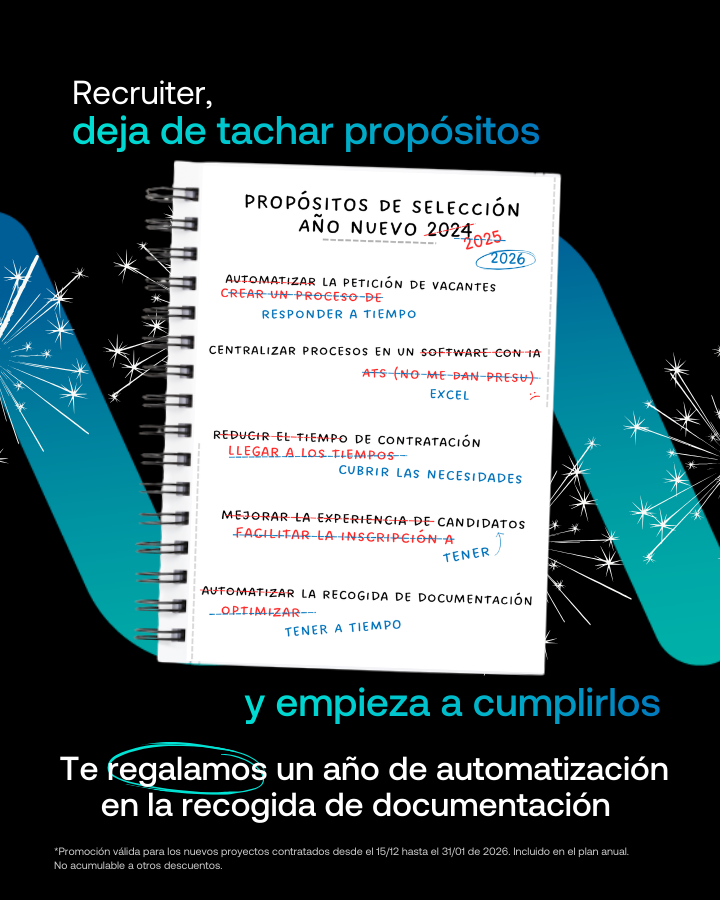Senior Talent

Nowadays, we value the seniority and experience of senior professionals in disciplines such as education, healthcare or law, and a senior construction manager or a professional with more than 10 years of management experience is also highly sought after. Gray hair, in general, conveys experience, reliability, maturity!
Despite this, we see how companies are increasingly reluctant to hire people over 50. As HR experts, we see daily how candidates over 50 years old are perceived, in many cases, as outdated, non-adaptable, less ambitious and less energetic professionals than younger ones.

A great source of talent

These are people with a great culture of effort and extensive experience, who deal better with changes and have a great capacity for negotiation, problem solving and decision-making.
They are also more resilient and proactive, have an important network of contacts and are less impulsive than younger people. All this translates into a great capacity to work and also to teach new generations.
In fact, this is where the true potential is unlocked. When we combine senior and young workers into a team.
BENEFITS
Why do companies need to have senior professionals in their ranks? Here are a few reasons:

- It can bring differential value to the area of innovation. Senior professionals who maintain their ability to learn and evolve can bring valuable experience and leadership skills.
- It's an opportunity for companies. Due to the crisis, many valuable professionals have been displaced without having yet found a job. The advantage of this type of professional is that they have already acquired knowledge and experience in other organizations, so this learning phase does not need to be carried out within the framework of the new company.
- Stability: Unlike younger profiles, who may change to an organization that offers them new opportunities when they are sufficiently trained, as time goes on, professionals seek job stability, which often makes them more loyal to the organization.
Finally, it should be noted that senior talent also has an important social role to play. In fact, he's already doing it: many seniors are taking advantage of their experience and knowledge to do solidarity work. There are also coaching/mentoring programs where seniors can offer their knowledge to younger professionals.
Why is it necessary to reflect on senior talent?
The society and work environment of the beginning of the 21st century have changed radically compared to the same period of the previous century:
- In the European welfare state, retirement reached 60-65 years of age. However, numerous factors (improved health, ICTs, etc.) have meant that the barrier of 60 does not so clearly mark people's old age. In fact, several authors differentiate a period of young-seniors that would cover approximately 60-80 years. In some cases, these people consider that they still have a lot to contribute to society and prefer to stay active, either through paid work or through volunteer programs.

- Technological development has transformed processes in companies. Technologization requires less physical effort to carry out tasks, allowing senior talent to continue carrying out their work. This fact is a very important factor for companies that can benefit from having multigenerational teams in their innovation projects, combining the experience of seniors with the freshness of younger professionals.
Keys to promoting senior talent
Recommendations for promoting senior talent in the labor market:
- Public administrations: measures based on incentives that allow citizens to extend their careers, discourage early retirement systems when they affect people who maintain their right to work, redesign active employment policies or promote an increase in the average size of Spanish companies, among others.
- Workers: As short-term measures, provide adequate assistance to people looking for employment or promote retraining programs and the acquisition of new knowledge that allow them to maintain their employability in a digital environment. In the long term, continuous training could be guaranteed, the digital divide reduced or awareness campaigns designed to make workers of retirement age consider continuing to work.
- Companies: promote the hiring of senior workers and their continuity in the company, including flexible working measures, encouraging teleworking, using formulas to reduce working hours or new career models that take advantage of the experience of seniors in a role other than the executive one. In addition to supporting the transmission of knowledge, reconciling work and capacity development with the responsibilities of seniors, increasing their participation in decision-making, encouraging their recruitment, promotion and retention, making changes in business culture to promote their permanence or encourage the implementation of strategic workforce planning projects.

.jpg)
Fulfill your selection purposes
Recruiter, fulfill your recruitment purposes in 2026 with the help of Velora. And as a gift, a free year on automatic document request.

Related articles
More articles to inspire your HR strategy









